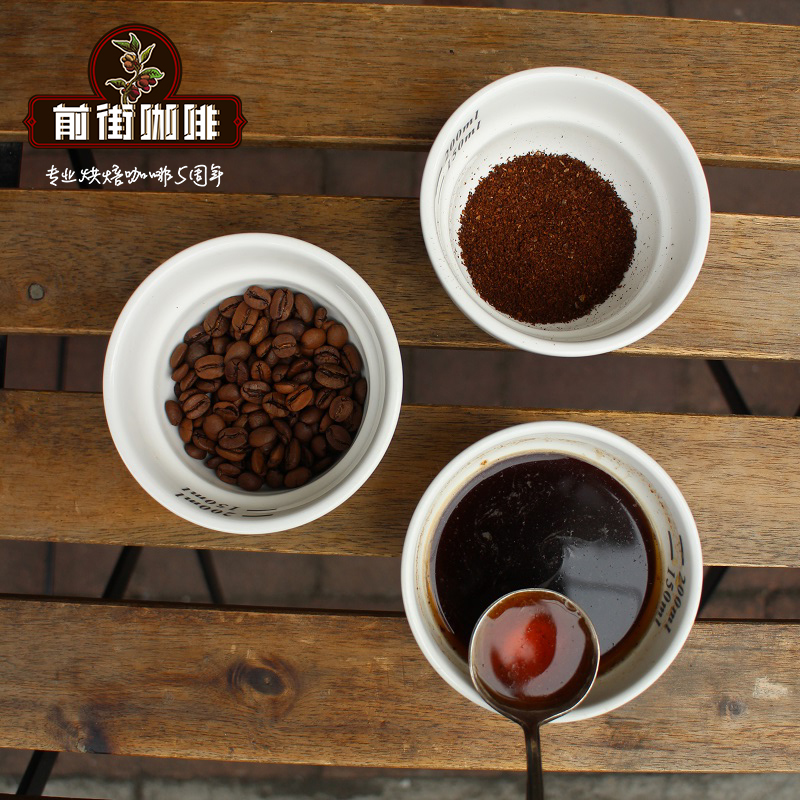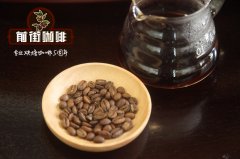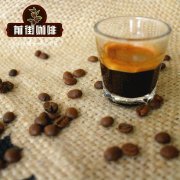What is ECX? Boji Washing Plant Introduction Ethiopian native coffee flavor

Professional coffee knowledge exchange more coffee bean information please follow the coffee workshop (Wechat official account cafe_style)
In addition to being the birthplace of coffee, Ethiopia offers incredibly diverse flavor features in its micro-regions. Coffee from the Kochere region has a strong fruity tea flavor, accompanied by typical citrus and drupes. When combined with natural processing, coffee basically comes into contact with fruit for longer, and the result can be understood as fruity. Direct wine, juicy and berry tea, with hibiscus lemonade on one side.
The coffee is picked and sent to the Boji washing station, taken out within 12 hours and washed with spring water. To us, it clearly belongs to the category of "berry bomb". It is juicy and sweet, but also a little smooth and creamy.
Until recently, coffee grown by smallholder farmers and cooperatives in Ethiopia had to be sold through ECX, in which batches were classified by general region and quality (level 1-5), thus avoiding most traceability. In March 2017, the Prime Minister of Ethiopia approved a reform that would allow co-owned washing treatment stations to export coffee directly, which would separate top coffee, raise prices for farmers and increase recognition of Ethiopia's best coffee. This enhanced traceability enables us to purchase directly from the same washing treatment station year by year and opens up the potential for partnerships with individual farmers or small groups in the community.
Farm: all kinds of small farmers transport to Boji washing treatment station area: Kore,Kochere,Yirgacheffe
Processing method: natural
Altitude: 1795-1900 msl
Variety: native species
What is ECX?
Ethiopian coffee exports date back to the 19th century, when cafes appeared in Yemen and the Middle East. In 1838, Ethiopia exported the first ten tons of coffee beans to London, Marseilles and New York through the Red Sea port of Massawa. With the growth of trade exports, Ethiopia's coffee industry ushered in a new pattern in the middle of the 20th century. When the Ethiopian National Coffee Board was established in 1957, Ethiopia overthrew the former emperor, real power fell to the military, land was redistributed, land ownership and wage labor were banned, which had a great impact on the coffee industry at that time. People even began to go back to the forest to pick coffee.
Since the 1880s, Ethiopia suffered from famine and unrest one after another, and democracy and freedom were not ushered in until the 1990s, but due to the large and uncontrollable price fluctuations in the international market, the competition among Ethiopian coffee farmers became more and more fierce. Some large private coffee farms have their own processing plants and means of transportation, which can be produced and sold on their own. But for small coffee farmers, it is miserable. With no equipment and no means of transport, beans can only be piled together and sent to remote processing plants. Coupled with the long distance and changeable weather, beans will have all kinds of reactions on the road, the quality will decline, and the price can only be sold at a low price. Over time, many coffee farmers have become the existence of "growing coffee for survival".
Based on all the above, ECX was born in 2008.
Ethiopia produced 6.7 million bags (60kg) of coffee in 2015, second only to Brazil and Colombia, ranking third in Arabica production; of these, 3.7 million bags were used for domestic consumption, with per capita annual coffee consumption 2.27kg (source ICO). Ethiopia's annual coffee exports account for 60% of the country's export income. Coffee is the first trading item after the establishment of ECX.
ECX was widely praised at the beginning of its founding, and its original intention was to change the situation of high transaction risk and cost in Ethiopia agricultural market and build an effective, reliable and transparent commodity market by introducing modern trading rules and technologies such as pricing mechanism, warehousing logistics and instant messaging. It also claims that more than 2.4 million small farmers will be provided with market channels through rural cooperatives. From this point of view, ECX is equivalent to a "distribution center", achieving the following points:
1. The price is better guaranteed, it buys coffee beans from coffee farmers at constant and relatively favorable prices, and then hoards them.
two。 Coffee is graded, and the best has the highest price.
3. With timely information, coffee farmers can immediately get the transaction price, regional processing station, regional coffee warehouse and other information by phone.
4. Warehousing and processing plants have been set up. As of 2012, Ethiopia has 56 warehouses in 17 locations, 9 of which have coffee warehouses. The transportation cost is reduced.
Qianjie coffee is recommended to be brewed with 90-02 degree water, with a good floral aroma, berry, strawberry jam and apricot, tropical fruit flavor.
Important Notice :
前街咖啡 FrontStreet Coffee has moved to new addredd:
FrontStreet Coffee Address: 315,Donghua East Road,GuangZhou
Tel:020 38364473
- Prev

How to drink Indian Bengal Tiger Robusta Coffee beans
Professional coffee knowledge exchange more coffee bean information please follow the coffee workshop (Wechat official account cafe_style) India Royal Robusta, high-altitude manor beans, the legendary royal kaapi royal, Luodou in the best. As a combination of Italian beans, kaapi royal's extremely rich fat can enhance the mellow feel of coffee, especially suitable for making lattes and kapos. The size of 18 mesh
- Next

What is suitable for washing Royal Robusta Coffee in India? is Royal Robusta Coffee good?
Professional coffee knowledge exchange more coffee bean information Please pay attention to the coffee workshop (Wechat official account cafe_style) India has always been one of the most important and special coffee producing countries in the East. In addition to the famous wind-soiled Farmabar coffee beans, India also produces many high-quality alpine Arabica manor-grade beans, as well as rare and exquisite planting, Robbs.
Related
- Does Rose Summer choose Blue, Green or Red? Detailed explanation of Rose Summer Coffee plots and Classification in Panamanian Jade Manor
- What is the difference between the origin, producing area, processing plant, cooperative and manor of coffee beans?
- How fine does the espresso powder fit? how to grind the espresso?
- Sca coffee roasting degree color card coffee roasting degree 8 roasting color values what do you mean?
- The practice of lattes: how to make lattes at home
- Introduction to Indonesian Fine Coffee beans-- Java Coffee producing area of Indonesian Arabica Coffee
- How much will the flavor of light and medium roasted rose summer be expressed? What baking level is rose summer suitable for?
- Introduction to the characteristics of washing, sun-drying or wet-planing coffee commonly used in Mantenin, Indonesia
- Price characteristics of Arabica Coffee Bean Starbucks introduction to Manning Coffee Bean Taste producing area Variety Manor
- What is the authentic Yega flavor? What are the flavor characteristics of the really excellent Yejasuffi coffee beans?

